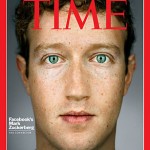When you are just getting started on google adwords you might be confused about the different keyword match types and what they mean exactly. Understanding the difference in the match types will give you a good understanding of the basics of pay per click and this can help to ensure that you have the right keyword set up and account structure in place.
Not utilizing the different match types correctly could mean a very expensive exercise in pay per click marketing if you are not careful. The correct use of the main match types; broad phrase, exact and negative match will play an important role in the success of any Google Adwords campaign. So lets examine each keyword match type and see what they are all about:
Broad Match:
This is the most “all encompassing” match type which means your ads will most likely be triggered even if your keyword forms any part of a search query or search phrase. If for example your keyword was Tennis Racket, then with broad match selected for this keyword your ad could be triggered if any part of the search query or phrase contained a wide range of related terms. For example your ads could appear if the search query contained one or both words tennis and racket in any order and with any other words and terms. Singular plural and other relevant variations on the keyword could also be enough to trigger your ads.
This is how broad match can catch a lot of people out. Google sets this automatically as the default match type so you want to keep close attention to what keywords exactly you want to apply a broad match setting to. Keywords that are incorrectly set to broad match can quite easily run up lots of impressions and lots of clicks from the type of traffic you want to stay clear of. Filtering out as many unwanted clicks as possible is a very important component of PPC marketing. Keeping the number of keywords set at broad match to a minimum is one way of preventing unwanted clicks.
However in some cases broad match can be very useful when you want to widen the scope of your targeting to try and capture a portion of good traffic that is not easily captured by the other 2 positive match types i.e. phrase match and exact match. By employing this tactic you’ll probably be faced with high impressions, lots of clicks and low conversions rates in most cases. But employing this tactic is useful when the traffic that comes your way converts and the pay-off from the conversion is big. Then you will reap the reward for using broad match.
Phrase Match:
When your keywords are set to phrase match your ads can only be triggered to appear when a user searches on the phrase “Tennis Racket” with the words in that exact order. However your ad can also appear for any words, phrases or part phrases that either appear directly in front of the phrase “Tennis Racket” or immediately after the phrases “Tennis Racket”. This match type is initiated when you surround your keyword with quotation marks (e.g. “Tennis Racket”)
For example with phrases match selected your ads may show when searches are made for black tennis racket, cheap tennis racket, tennis racket handle, tennis racket strings ect.
But your ad won’t show if the search query was tennis rackets (plural), tennis ball, racket tennis, racket ball, buy tennis rackets (plural) and so on.
Phrase match can be an excellent choice of keyword match type when you are targeting a wider scope for potential search queries. It’s a great match type to use when the keyword which is searched on is often accompanied by other words and phrases contained within the same search query. Phrase match will still cover a large scope of search queries but without the all encompassing nature of broad match.
Exact Match:
The exact match option is the most refined and targeted match type of the 3 main keyword match types. When you set your keywords to exact match – for example [tennis racket] – this means your ad will only appear when a users searches on exactly the same phrase with those two words in the exact same order – without any other words in the same search query.
So your ads will not show for such search queries as black tennis racket, blue tennis racket, cheap tennis racket, racket tennis, tennis (single word), racket (single word) ect.
The exact match keyword is constructed by putting square brackets [tennis racket] around your keyword or phrase.
Using exact match can be a great way of maximising conversion rates as people who tend to search on exact match phrases are often the ones who are actively seeking to complete an action i.e. to buy, to sign up, to download something etc. However exact match tends to be the one match type that results in the least amount of click throughs. If your budget is very tight exact match could be an excellent option to set most of your keywords at if you want to attract the most relevant traffic and at the same time filter out as many unwanted clicks as possible.
I tend to use a combination of exact match and phrase match types with a lot of my clients google adwords accounts. Finding the the right balance when allocating what keywords should be set to phrase match and what keywords need to be set at exact match is just one of the keys to maintaining a well structured account with good performance.
In my next article I will cover negative match types, one of the most powerful PPC managment features and an excellent tool to use to keep your costs down.












Great article, really good for beginners to get to grips with and understand the different match types.
Have you had a play around with broad match modifier? It’s another match type that is definitely worth including.
Aindreas